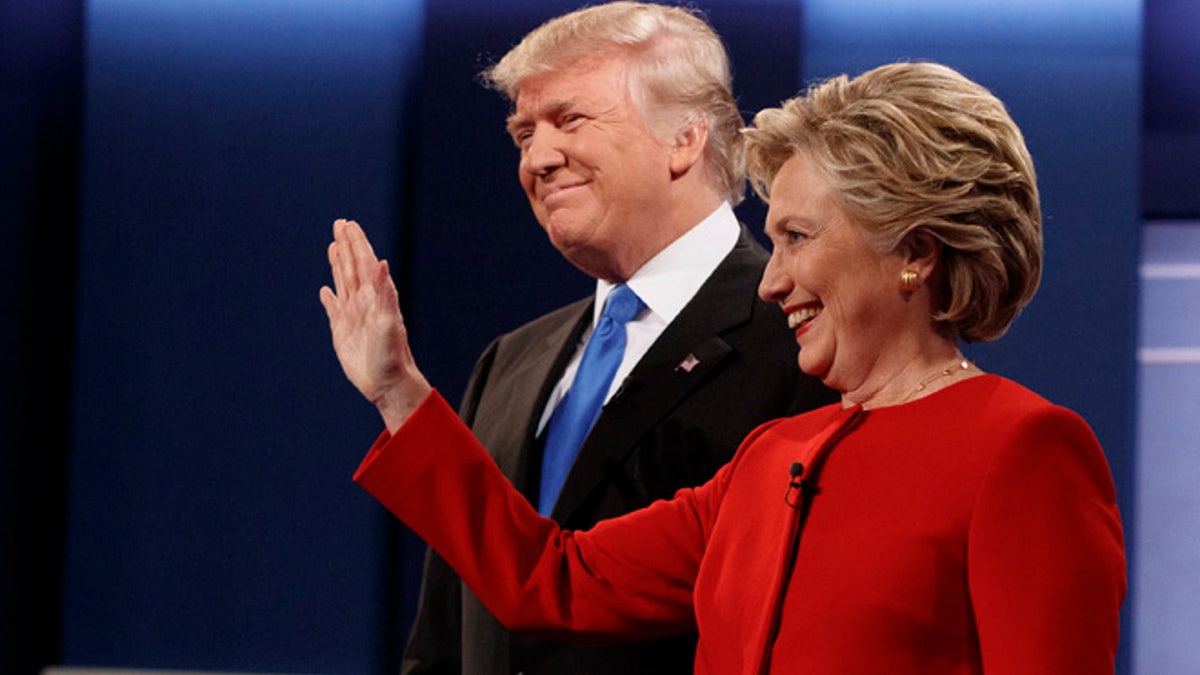
AP (Donald Trump and Hillary Clinton)
Our U.S. Constitution specifically provides that the president shall be "Commander in Chief of the Army and Navy of the United States, and of the Militia of the several States, when called into the actual Service of the United States."
Further, the main reason the states and the Founding Fathers came together to create the Republic in the first place was to “provide for the common defense” of our people, as articulated in the preamble to the U.S. Constitution.
Make no mistake, electing a commander in chief to keep America safe will be the most important issue in next Tuesday’s election. And keeping America safe during these times will be the greatest challenge of our next president. Just consider the present landscape at home and abroad.
- Radical Islamist attacks on U.S. soil and abroad;
- One thousand active FBI probes of ISIS in the U.S.;
- FBI investigations of ISIS in all fifty states;
- An aggressive China laying claim to the South China Sea where $5-trillion of the world’s economy passes on an annual basis;
- Chinese cyber warfare against American businesses and the Federal Government;
- An Iranian nuclear deal allowing the terrorist regime to move forward with Intercontinental Ballistic Missile (ICBM) development at some point;
- The need to address the electromagnetic pulse (EMP) threat;
- No land-based missile defense capability on the entire East Coast of the U.S.;
- The dispersion and expansion of radical Islam well beyond Al Qaeda into groups such as ISIS, Boko Haram and others;
- Radical Islamists effectively using social media for recruitment efforts;
- The volatile Kim Jong-un advancing North Korea’s nuclear and missile programs;
- Nuclear weapons in an unreliable and unstable Turkey;
- Failure to secure America’s borders.
Yes, whomever we elect as commander in chief on Tuesday, November 8, 2016, will face the most complex national security and foreign policy situation that a U.S. president has ever faced. Today we have an Army that has been cut to pre-WWII levels. Our Navy is its smallest since WWI, and we have the smallest and oldest Air Force in our history.
Further, defense spending has declined from 52.2 percent of the federal budget in 1960 to approximately 16 percent today. Today we live in a more dangerous world than the day after 9/11. The U.S. Government, and the governments of our allies, remain flat-footed, stove-piped and lack the ability and ingenuity to adequately respond to the global Jihadist threat.
Unfortunately, our new commander in chief will have to face these and other challenges with a military that has been gutted.
Following the 9/11 attacks on the U.S., the American people and our leaders came together in a bipartisan fashion and resolved to do whatever it took to keep America safe. Once again, we need that same kind of resolve to keep our country safe during these times. It will be the greatest challenge of our next President and he, or she, must lead.
Editor's note: The author recently presented a lecture entitled, “The Greatest Challenge of Our Next President: Keeping America Safe During These Times,” at the Gerald R. Ford Presidential Museum in Grand Rapids, Mich., on November 3.
